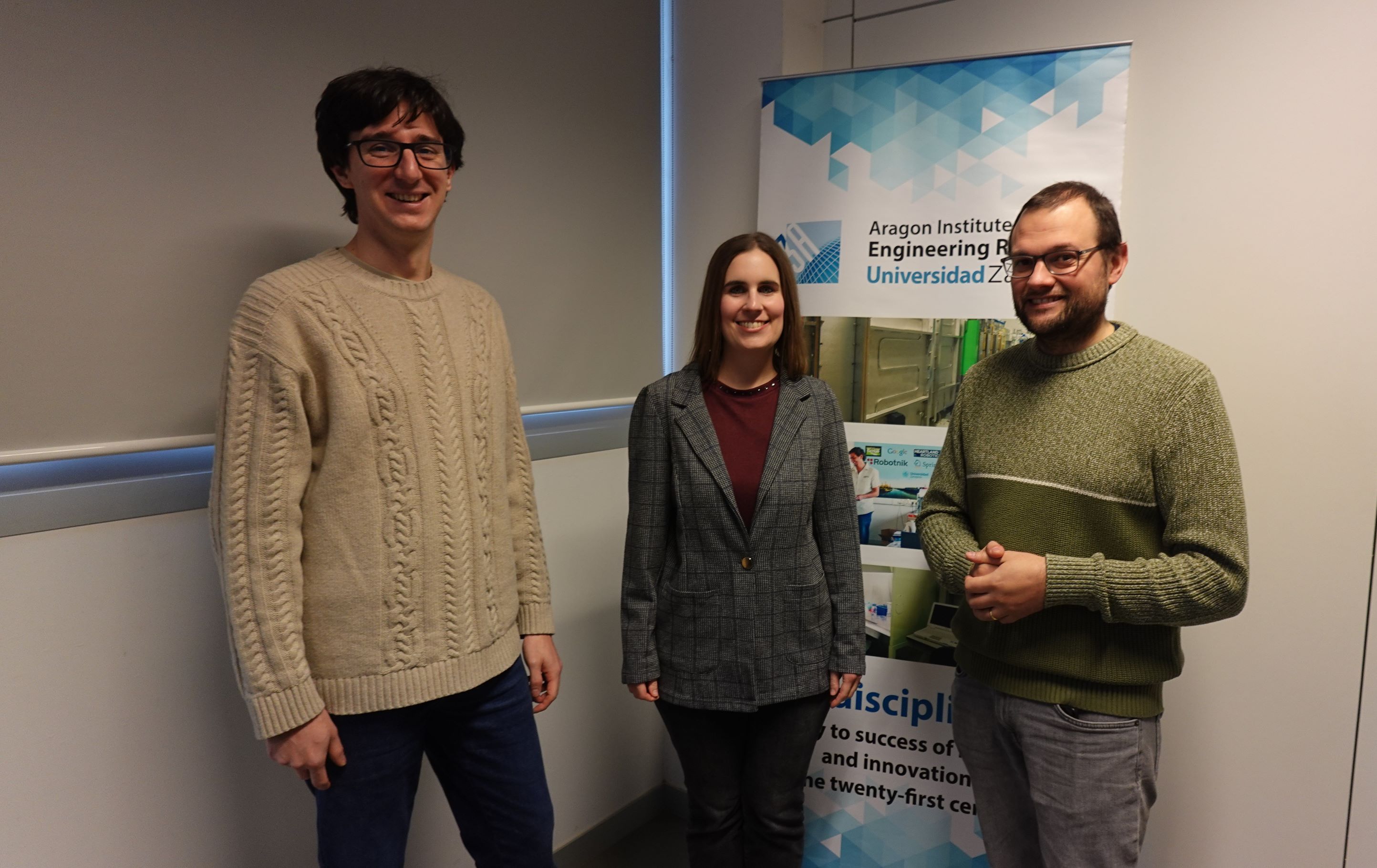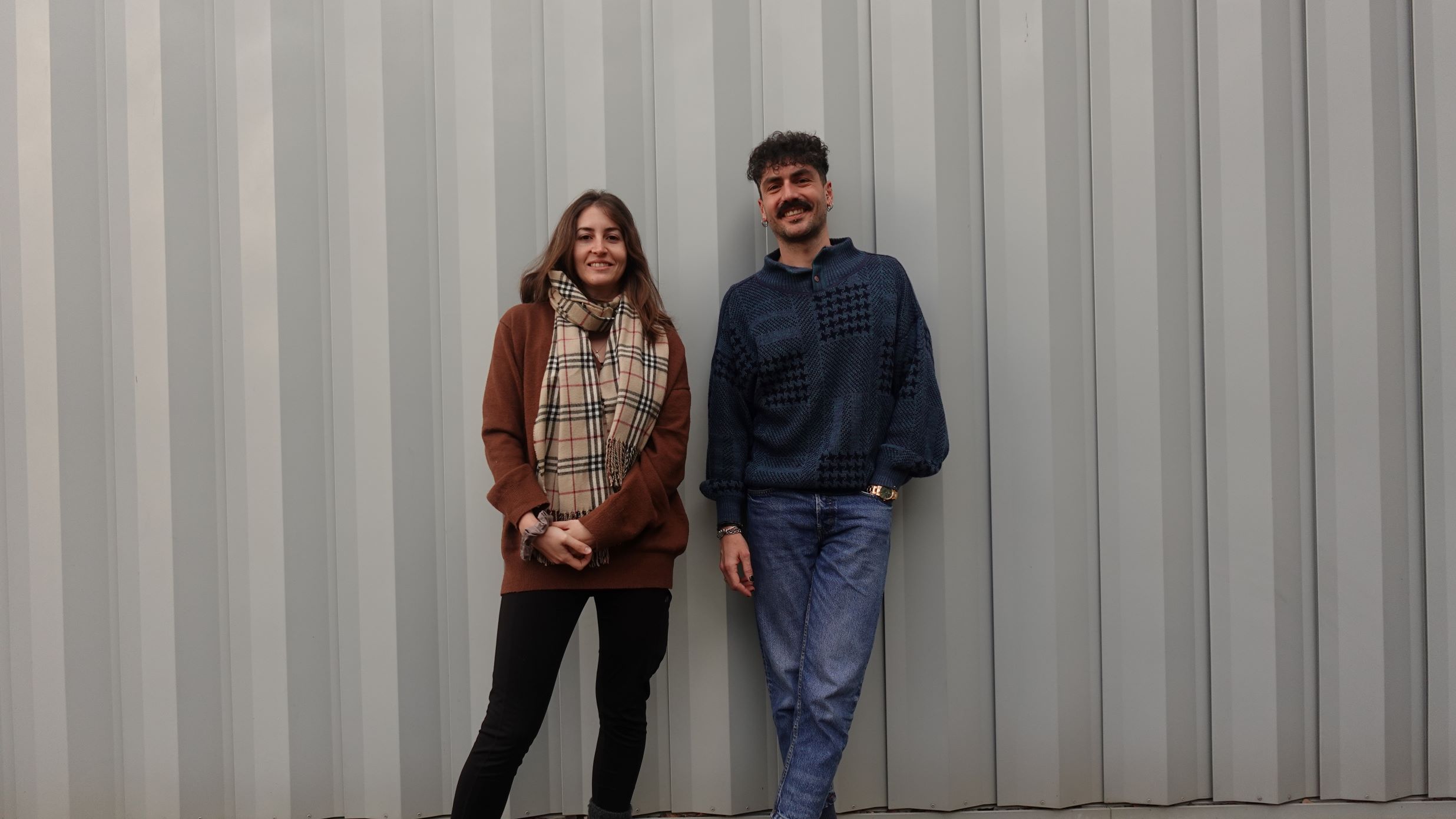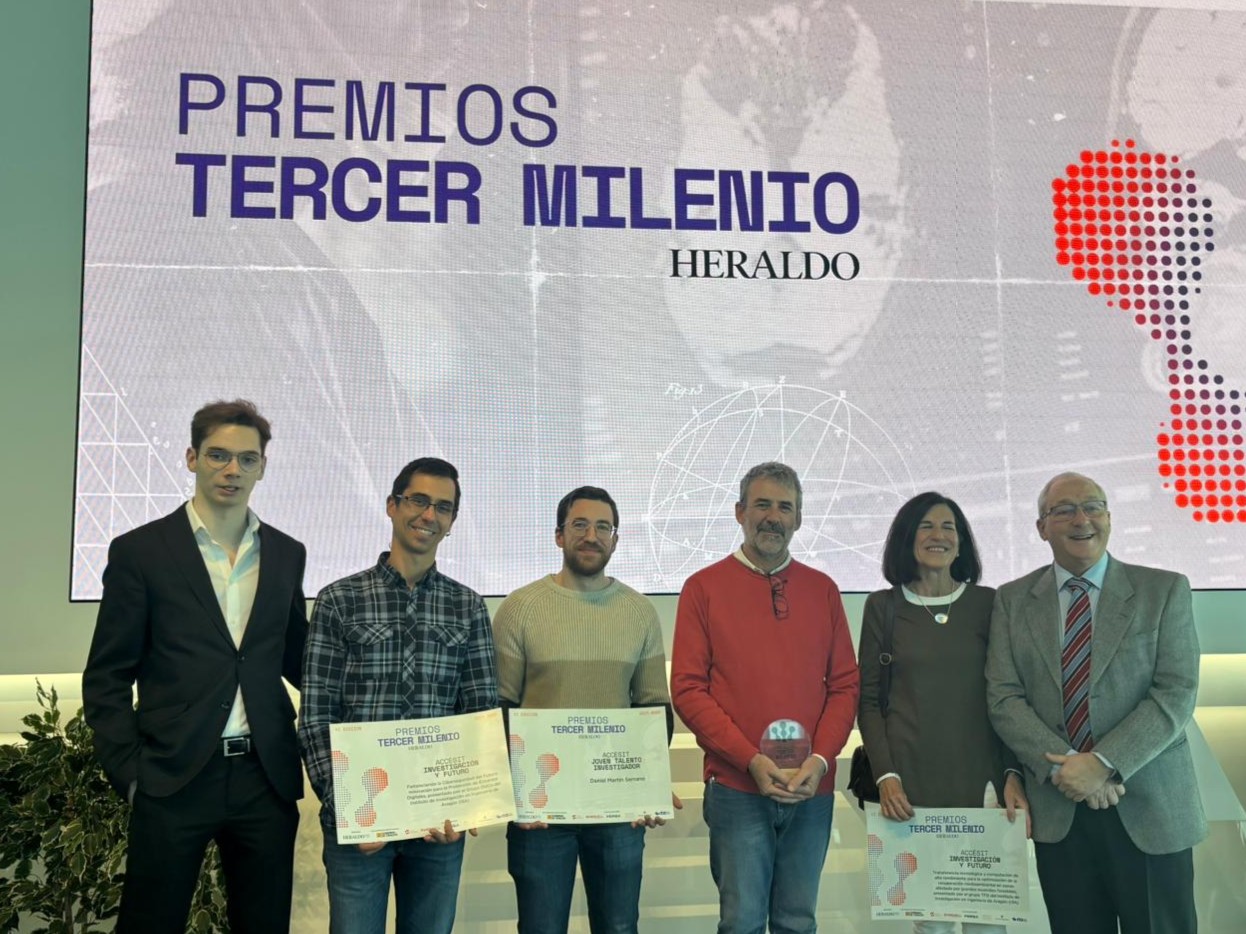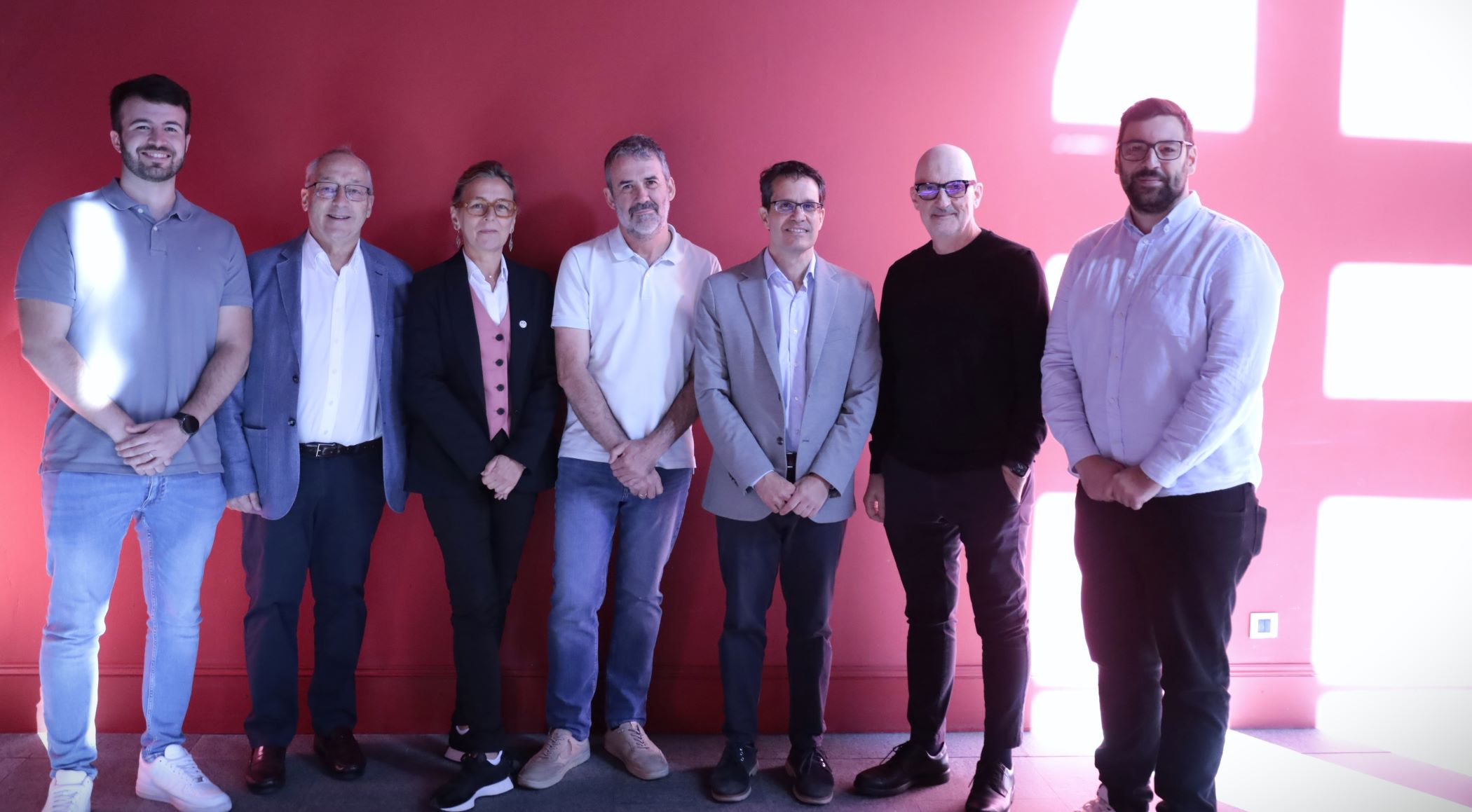
The European EIC Transition programme is funding the EndoCartoScope project, led by the Aragón Engineering Research Institute (I3A) at the University of Zaragoza, which will help to promote a new generation of endoscopes with intelligent spatial vision. This is the first time that the University of Zaragoza has coordinated a project within the EIC Transition. A total of 413 proposals were submitted at European level, of which 40 have been selected for funding. Six of these are led by Spanish institutions, including EndoCartoScope, which will receive €2.5 million over the next three years.
Professor José María Martínez-Montiel, professor at the University of Zaragoza, is the principal investigator of the EndoCartoScope project. The interdisciplinary consortium is coordinated by the I3A–University of Zaragoza and has as partners the Aragón Health Research Institute (IISA) and the technology company Odin Vision, which specialises in artificial intelligence solutions applied to endoscopy.
The project was presented today in the Paraninfo by Professor Martínez-Montiel, at an event in which he was accompanied by Ángel Lanas, scientific director of the IISA, a partner in the project; the Vice-Rector for Scientific Policy, Pilar Pina; the Vice-Rector for Innovation, Transfer and Training, Manuel González Bedia; the Director of I3A, Jesús Arauzo; and the project's postdocs, Javier Rodríguez-Puigvert.
Endoscopy is the fundamental technique for early detection, diagnosis and treatment of diseases in organs such as the colon, bladder or larynx. However, current medical endoscopes do not have an understanding of the cavities they explore; they are limited to displaying images on a screen that the doctor interprets to navigate inside the body and thus complete the examination.
The new EndoCartoScope project aims to go beyond imaging by creating personalised 3D maps for each patient using computerised simultaneous localisation and mapping techniques based on endoscope video (VSLAM). In this way, endoscopes will have the ability to generate and make the most of 3D maps of the inside of each patient in real time during the examination.
In the first phase, EndoCartoScope will focus on colonoscopy, using 3D maps to ensure a thorough examination of the colon, reducing the risk of leaving areas unexamined and thus improving the early detection of polyps. The 3D maps will also allow accurate measurements, such as the size of a polyp, to be taken in real time while the examination is being performed.
In the medium term, endoscopes are expected to be equipped with navigation assistance systems similar to those used in modern cars but adapted to medical examinations, such as collision warnings or automatic guidance to specific areas of the colon that require monitoring.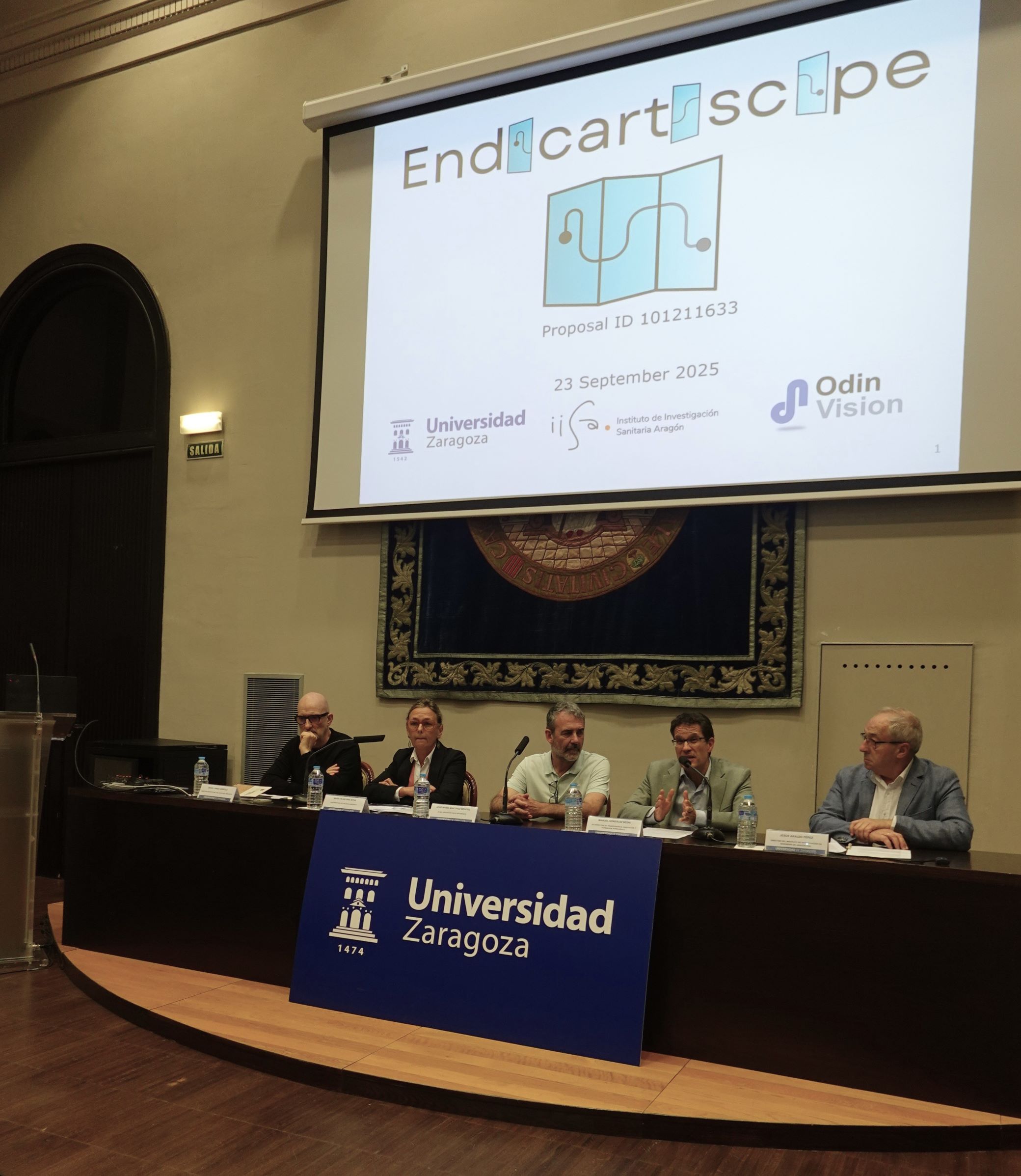
The long-term impact of EndoCartoScope will be particularly significant in the field of medical robotics. Compared to current surgical robots, which rely entirely on remote operation by the surgeon, VSLAM's 3D maps open the door to the development of autonomous medical robots capable of navigating and operating with a high degree of autonomy inside the human body.
This project is the natural continuation of EndoMapper, also led by the University of Zaragoza, which laid the foundations for the use of VSLAM technology in medical endoscopy. Now, with EndoCartoScope, a decisive step is being taken towards its actual clinical application.
This represents further recognition for the I3A robotics group, internationally renowned for its more than two decades at the forefront of VSLAM research, notably the ORB-SLAM software library and inverse depth parameterisation, which are benchmark systems in the field.
About the European Innovation Council (EIC)
The EndoCartoScope project has been selected in the EiC Transition 2024 call for proposals, aimed at validating innovative technologies that have already passed the proof-of-concept phase in the laboratory, as well as developing business plans focused on their future commercialisation.
The selected proposals must be based on previous results from projects funded in specific European calls for proposals. In the case of EndoCartoScope, the proposal is based on the results of the EndoMapper project (H2020-FET-OPEN), coordinated by I3A.
The EIC has selected six projects coordinated by Spanish entities from among the 40 funded, positioning Spain as the second country with the highest return in EIC Transition 2024, with more than €14 million obtained. The success rate for this call was 9.7%, reflecting the high competitiveness of the programme.
